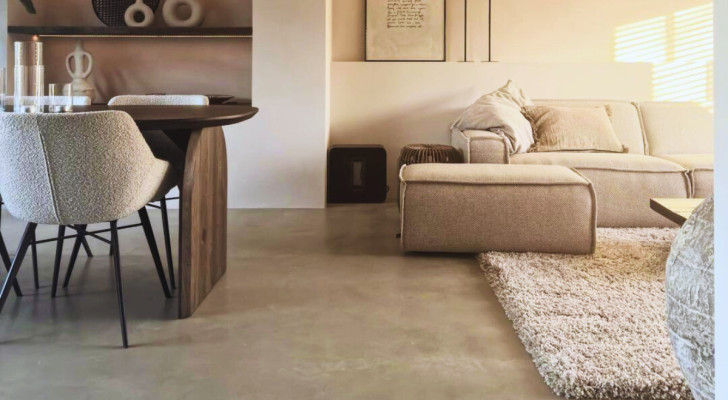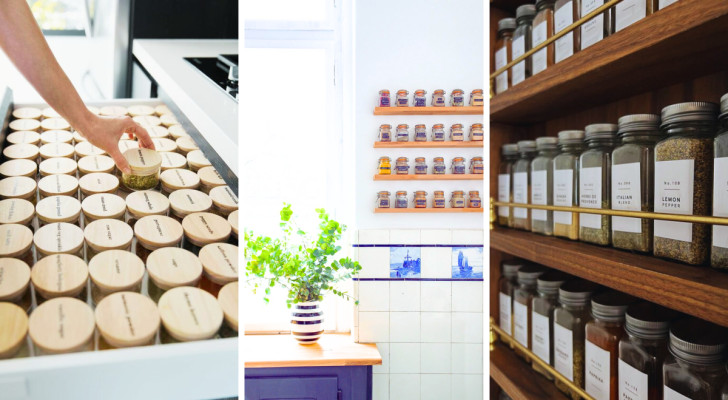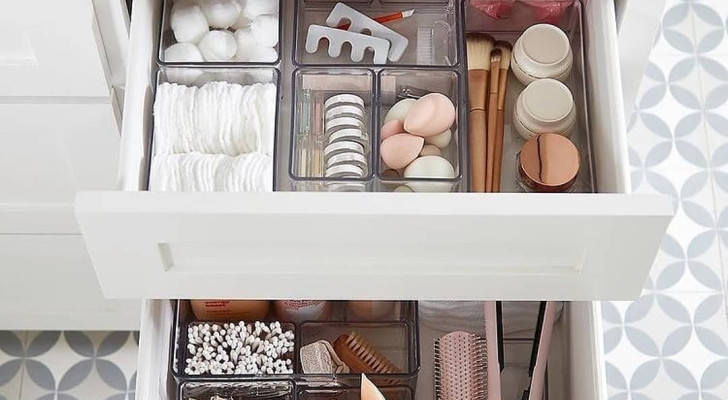Indoor concrete floors: tips for properly cleaning and maintaining them

Affordable, durable, easy to maintain and also beautiful – you can understand why indoor concrete floors are catching on. They are particularly suited to the industrial style, but also go well with modern and rustic decors.
Concrete can be installed and finished to look like other materials - but without the hassle of cleaning it like the materials it "mimics". Below, we list some tips related to caring for concrete floors:
Products for cleaning concrete floors

Regular cleaning is always done the same way, regardless of the finish of the floor in question. But to remove stains, you will need to make adjustments.
For concrete, avoid using products that are too aggressive: no ammonia or bleach, which can damage the surface finish. On floors that are decorated with stencils or are painted, avoid using detergents with acidic components (therefore do not use white vinegar or citric acid), and never use abrasive tools.
So what products should you use on a concrete floor? Well, we recommend using Marseille or Castile soap.
How to clean concrete floors

@carterfamilyranchhome/Instagram
First make sure that the floor is free of "obvious" dirt and debris: sweep and/or vacuum the floor. In both cases, use brooms (or vacuum cleaner accessories) that have soft bristles, to avoid scratching the floor.
In the case of stubborn stains, only use a brush with soft bristles and a mild detergent on them, scrubbing delicately. Degreasers can be used, but with caution (test first).
It is also important to dry the floor off thoroughly, preventing it from staying damp for too long.
The pros and cons of concrete flooring

@studioblackinteriors/Instagram
The advantages of concrete flooring are:
- Durability: these floors last longer than any other popular flooring, coping with high daily foot-traffic without any problems.
- Look: concrete floors don't have to be grey (which can be beautiful, in the right setting). Concrete can be manufactured/laid in a way that makes it look like wood, tiles, terracotta, and more!
- Economical: concrete floors are cheaper than most other options, and are also easy to install.
- Eco-friendly: these floors take less water and energy to install them; additionally they do not require periodic repairs or replacement of damaged sections (which creates waste).
- They resist humidity well: concrete flooring is nearly always sealed, ensuring moisture cannot penetrate the material.
There are some disadvantages to having a concrete floor, however:
- You must choose high-quality cement and use proper installation tools, otherwise the end result will be poor.
- They are very hard, which will become noticeable if you need stand for long periods on the floor.
- They can be cold, especially in winter. But with a radiant heating system will solve this problem.
Would you like to have concrete flooring in your home?





